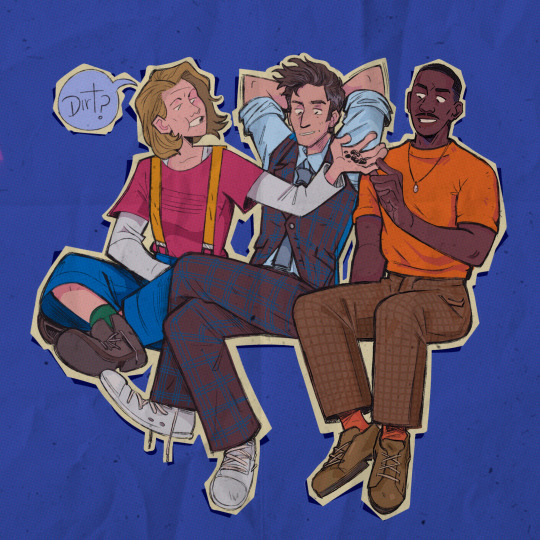Text
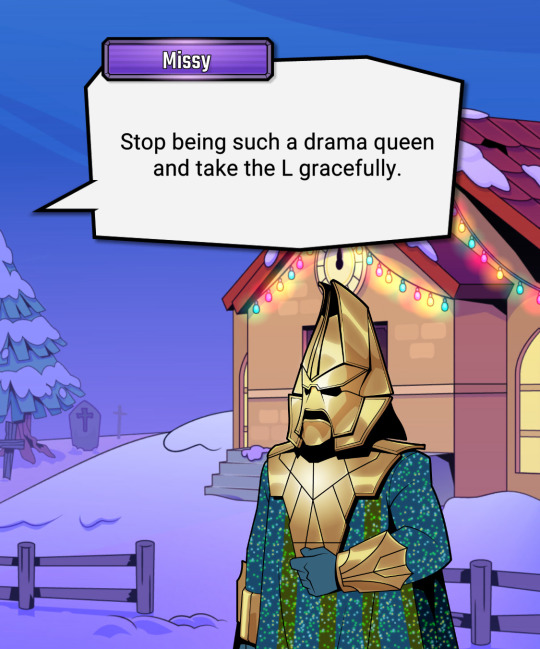
this is how the reality war was meant to end
7 notes
·
View notes
Text

A stylized screenshot study of Twelve from the episode "listen"
229 notes
·
View notes
Text
everyone gets heaven sent wrong. youtube essays will describe it as “a masterpiece that explores grief,” but it doesn’t really. sure, the abstractization of the theme is there to contextualize the mood of the story, but it doesn't actually explore grief in any specific manner.
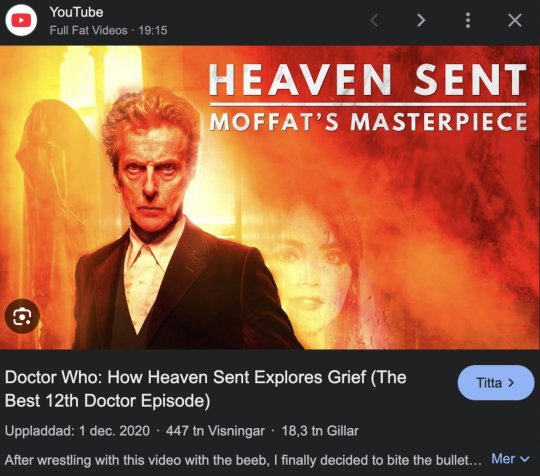
there’s little examination of emotional fallout, no real psychological depth, no attempt to reflect the social or personal dimensions of loss. the portrayal of grief is flattened into a metaphor—the doctor hitting a wall for two billion years—and that's intentional.
this common interpretation actually causes people to misread the episode. like here, fullfatvideos describe the doctor hallucinating clara encouraging him to fight and win as a beautiful testament to their love and how she's always there to pick him up.
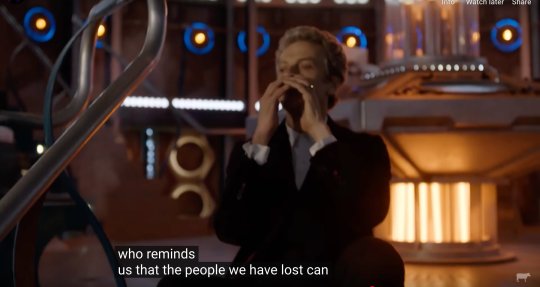
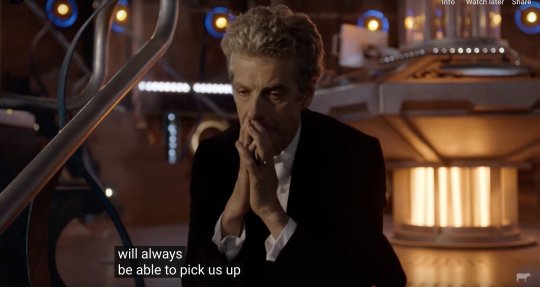
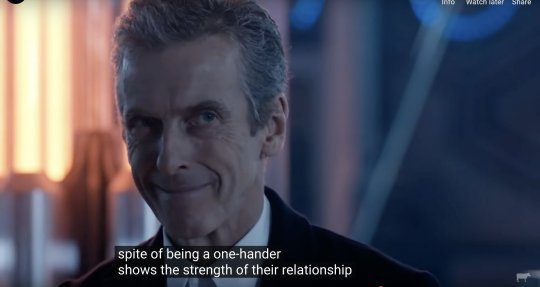
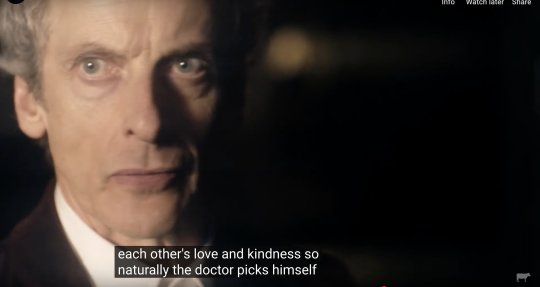
but that's the complete opposite of the intended effect. clara specifically told the doctor not to be a warrior, to not "win," to not hurt himself over her. he’s twisting her image to have the girl he loves the most tell him what he wants her to say.
in fact, hell bent directly contrasts his imagined clara with what the real one says when she realizes what he’s done (which isn’t encouragement, but horror). the doctor doesn’t process his grief. he doesn’t get better. he gets worse. he twists her memory to betray her wishes.
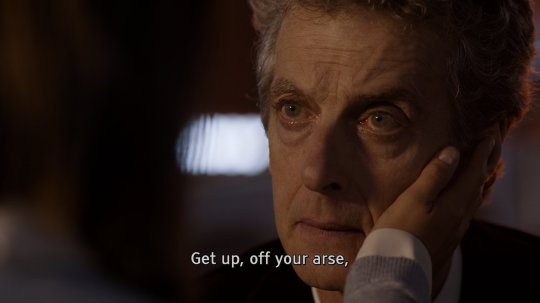
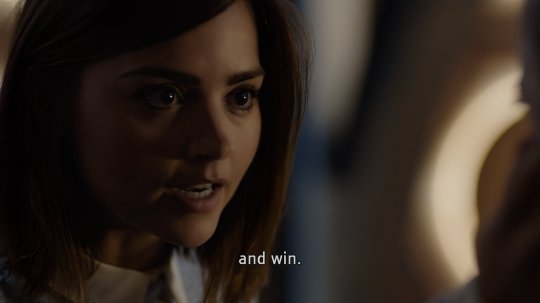
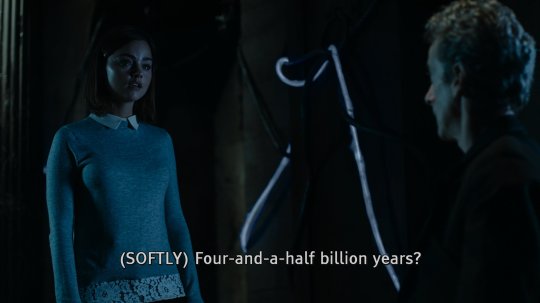
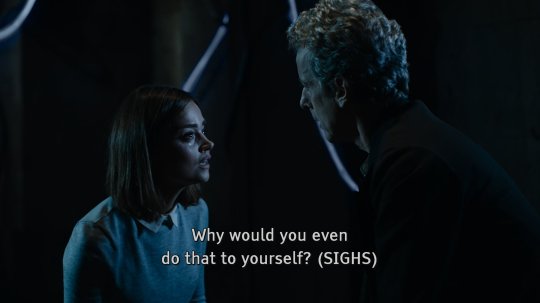
he's not healing—he’s mythologizing. the story turns grief into performance, presenting the doctor as an ideal: the solitary hero who never gives up, who endures beyond human limits. but that’s not a story about processing loss. that’s a story about refusing to.
on its own, it actually lands better as a story about persistence rather than grief—the draining, repetitive effort of clawing your way forward with no clear progress. that lines up more with how it feels.
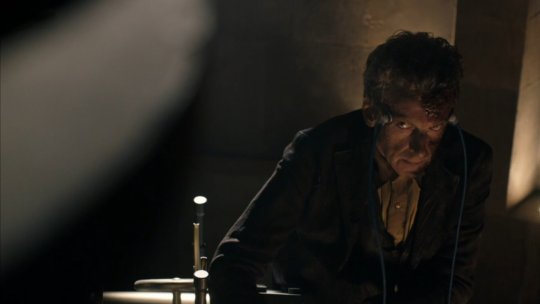
but even then, it’s stylized to the point of detachment (because that's what the doctor is doing). it’s about the concept of struggling, which is why it abstractly fits grief, but could just as easily be read autobiographically as moffat’s experience as showrunner.
and that abstraction—while effective—also makes it easy to project onto. i think that’s part of why it gets picked up as this grand, universal statement on grief. it’s vague enough to seem profound, clean enough to feel “serious”, and emotionally restrained in a way that flatters a particular kind of viewer.
the doctor doesn’t cry. he endures. he outsmarts. he wins. and for a lot of people, that feels like emotional depth—because it’s presented with enough slow motion, voiceover, and gravitas to seem like it must mean something profound.
and it’s also why a lot of fans like this one but dislike hell bent (if you love both, you’re good). because it appeals to fans who idealize “pure” sci-fi. fans who resent the show when it centers women too much, or gets too political, or dares to be camp or comedic.
for them, this is the dream: one man alone in a gothic castle, solving a puzzle, stewing in stoic, masculine pain. the woman is dead. the feelings are controlled. the story is self-contained. it’s “adult,” but not actually mature.
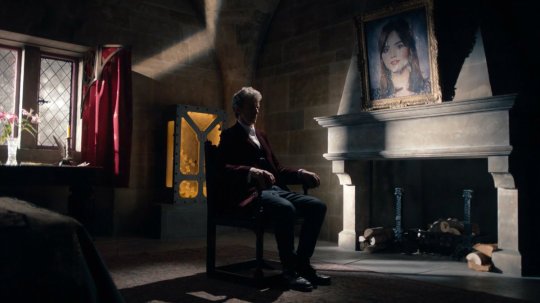
but that version of the doctor—the invincible, lone genius punching through time—isn’t the real doctor. it’s who he wants to be: the doctor as myth. hell bent interrupts that, pulling us back from the fantasy to someone who broke everything because he couldn’t let go.
when people call this the best episode of doctor who ever, it’s worth asking: best at what? what kind of doctor who is this? it’s broad and professional enough to feel like a perfect episode, and open enough to support whatever interpretation you want.
moffat specifically wrote it to be a crowd pleaser, with a tone that appeals to everybody. it's everyone’s favourite episode. and of course, that is what it is. it is a professional and perfect episode—that’s the appeal.
in fact, it’s probably, on a pure executional level, the best episode there’s ever been. it’s a technical showcase first and foremost. fifty-five minutes of television with everyone involved executing at the top of their game.
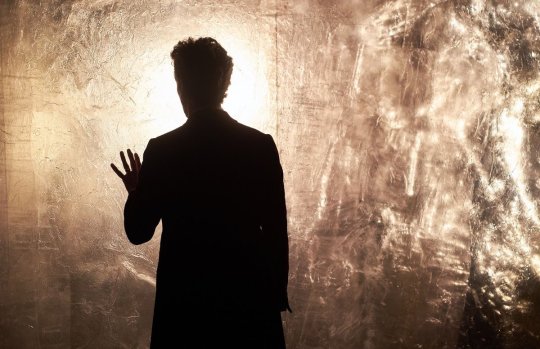
and that’s part of why it appeals so strongly to a certain kind of fan: the ones who want doctor who to be “serious” and “clever,” without the mess of something more difficult. it’s self-contained, self-justifying, and built to be admired rather than interrogated.
except it's not. it’s my second favourite episode of the entire show, but it doesn’t actually work without hell bent (my actually favourite episode of the entire show), which is what allows it to be interrogated.
because despite everyone loving heaven sent but not loving the follow-up as much, despite people calling it moffat’s masterpiece—it’s hell bent that’s the masterpiece. and it’s necessary. not just as a follow-up, but as a challenge.
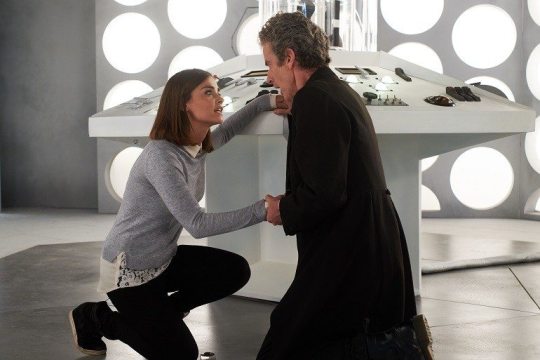
it reframes everything the doctor does not as noble, but as obsessive. it takes the fantasy that he endured because of love and reveals it as denial. nothing about heaven sent is him overcoming or processing anything. nothing good happens and he only gets worse.
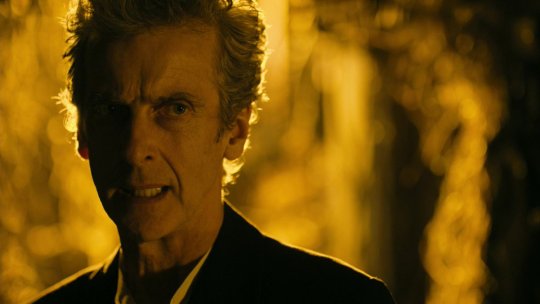
it only looked like a victory because we were watching the story he told himself. heaven sent isn’t actually about anything truly profound on its own. it only becomes meaningful because it’s the middle of a three-part story. so it only tells part of it. hell bent tells the rest.
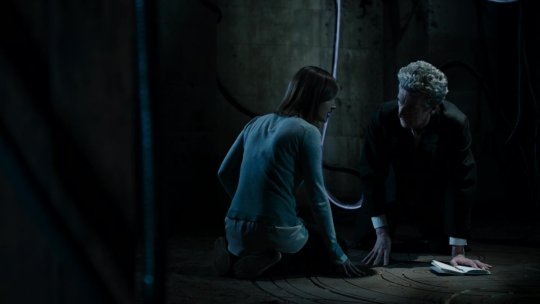
621 notes
·
View notes
Text

My Clara.
This will (hopefully) be part of a larger comic at some point but you can have it on its own for now.
163 notes
·
View notes
Text
obviously i knew that three hated being stuck on earth but i really wasn't expecting just how often three's like goodbye you wretched creatures i never liked any of you and you're all stupid only for him to slink back in after his escape plan fails again like my dear friends. disregard that 👍
615 notes
·
View notes
Text



now, then. i'm doctor martha jones: who the hell are you?
2K notes
·
View notes
Text
the doctor getting to meet a future incarnation of themself in the tardis: im so happy for you and your ugly fucking console room im serious
3K notes
·
View notes
Text
12 turns down ashlidrs request to travel with him with a whole explanation as to why two immortal people can never travel together because they need someone with mortal values and stuff and then every single time the doctor encounters the master he’s like Please come with me I want to see the stars with u please please please pl
702 notes
·
View notes



